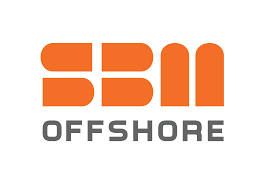Recent FCPA Enforcement Actions: The Layne Christensen Case and SBM Offshore
 The Fourth Quarter of 2014 has been a busy one for DOJ and SEC in the FCPA arena. We are all praying that DOJ and SEC resolve the Avon case soon so that we do not have to include the case on our lists for predictions for 2015 FCPA enforcement actions.
The Fourth Quarter of 2014 has been a busy one for DOJ and SEC in the FCPA arena. We are all praying that DOJ and SEC resolve the Avon case soon so that we do not have to include the case on our lists for predictions for 2015 FCPA enforcement actions.
One thing for sure in the enforcement area is that DOJ and the SEC always will surprise FCPA practitioners. There are nuances to every case and it is hard to predict sometimes how DOJ and the SEC will handle a particular issue.
Two recent cases show us again how DOJ and the SEC can do both — be consistent and how they can surprise us.
Layne Christensen: For a little bit of the usual, the Layne Christensen settlement included a DOJ declination and an SEC settlement of $5.1 million. The DOJ declination is not earth shattering nor does it reflect some extraordinary change in DOJ policy.
To the contrary, DOJ’s declination is consistent with past declinations and policies set forth in the November 2012 FCPA Guidance. If anything, it demonstrates that DOJ meant what it said when it encouraged companies to disclose potential FCPA violations and work closely with DOJ to remediate and implement improved compliance programs.
 In 2010, Layne Christensen decided to implement a state-of-the-art compliance program. As an initial step, it conducted a risk assessment. During the review, the company uncovered bribes paid in several countries in Africa.
In 2010, Layne Christensen decided to implement a state-of-the-art compliance program. As an initial step, it conducted a risk assessment. During the review, the company uncovered bribes paid in several countries in Africa.
Layne Christensen’s board and audit committee actively took over the internal investigation; the company disclosed the problems to DOJ and the SEC; an internal investigation was conducted with numerous reports to DOJ and SEC officials; Layne Christensen remediated the problems and implemented a comprehensive compliance program, while closely coordinating every step it took with DOJ and SEC officials.
In the end, Layne Christensen earned a DOJ declination, but so have numerous other companies in similar circumstances. The Layne Christensen case confirms what we already knew – if a company discloses problems to DOJ and the SEC, works closely with the prosecutors, and implements real significant compliance changes, there is a significant chance that the company can earn a declination. Of course, there are many variables that can impact this result, such as the nature and extent of bribery conduct.
SBM Offshore: Last week, SBM offshore reached a settlement with Dutch prosecutors resulting in a $240 million fine for bribery violations in Angola and Equatorial Guinea. SBM Offshore found no violations occurred in Brazil.
 Significantly, DOJ declined to prosecuted SBM Offshore. DOJ’s action was surprising – DOJ has coordinated settlements with other jurisdictions, taking into account foreign law enforcement settlements (e.g. ADM and Total), but never declining to prosecute based on the prosecution of a foreign company by a foreign law enforcement agency.
Significantly, DOJ declined to prosecuted SBM Offshore. DOJ’s action was surprising – DOJ has coordinated settlements with other jurisdictions, taking into account foreign law enforcement settlements (e.g. ADM and Total), but never declining to prosecute based on the prosecution of a foreign company by a foreign law enforcement agency.
DOJ’s decision could have been the result of several factors – first, SBM Offshore’s bribery conduct could have been less pervasive than originally suspected, although a $240 million settlement suggests otherwise; second, SBM Offshore’s bribery conduct may have had tenuous jurisdictional nexus to the United States; third, DOJ may have had political reasons for deferring to the Dutch prosecutors office and received significant assurances that the Dutch prosecutors would monitor SBM Offshore’s post-settlement remediation efforts.
Whatever the reason, DOJ’s latest action is surprising and may reflect some sensitivity to complaints of multi-jurisdictional liability for a single course of conduct. Future enforcement actions will give us some clues as to DOJ’s thinking on this matter.















